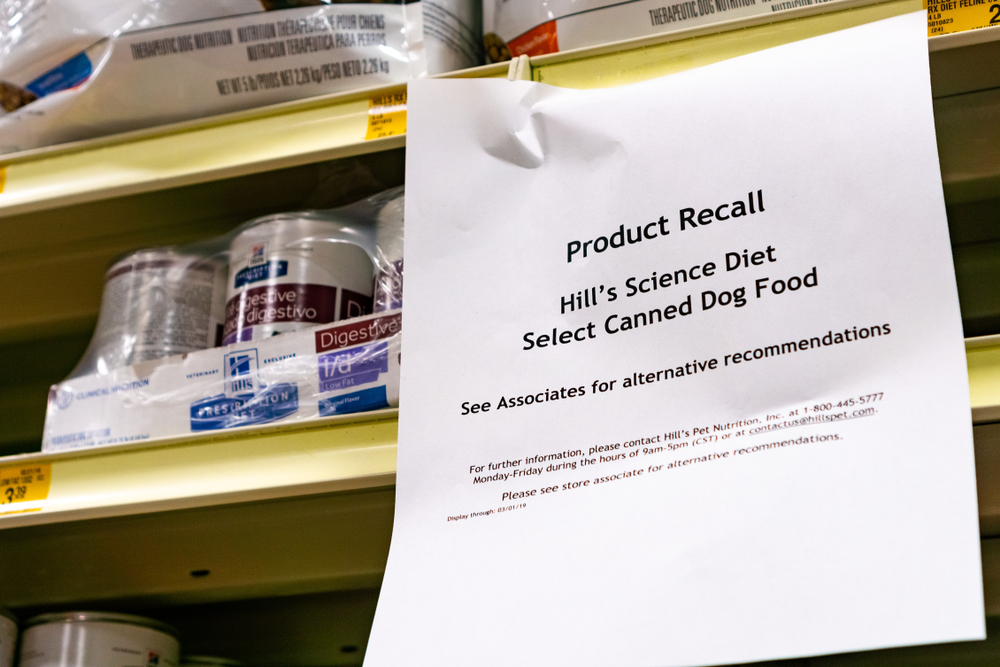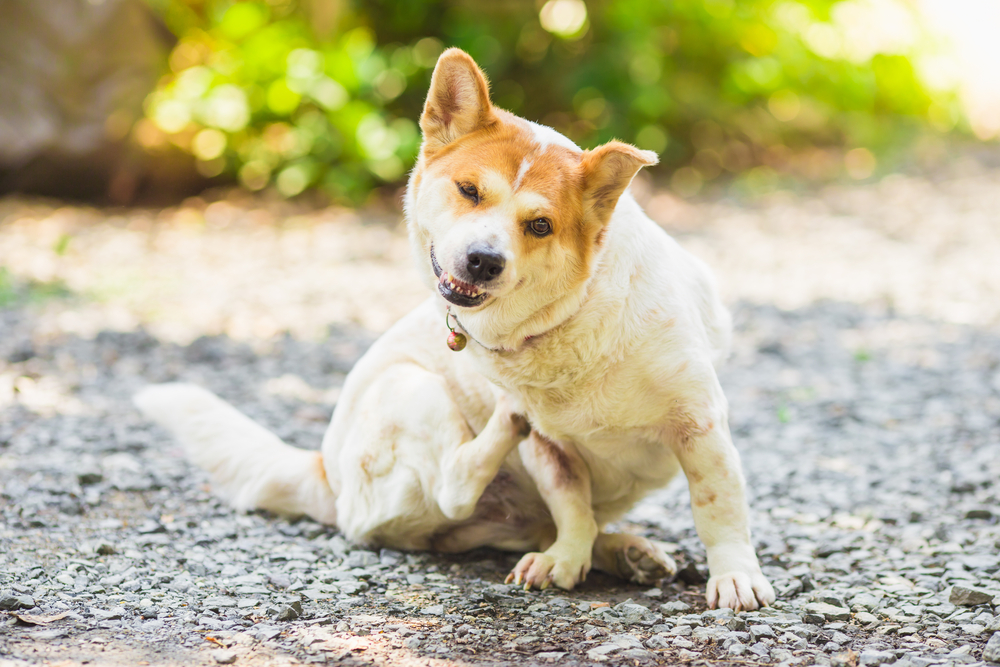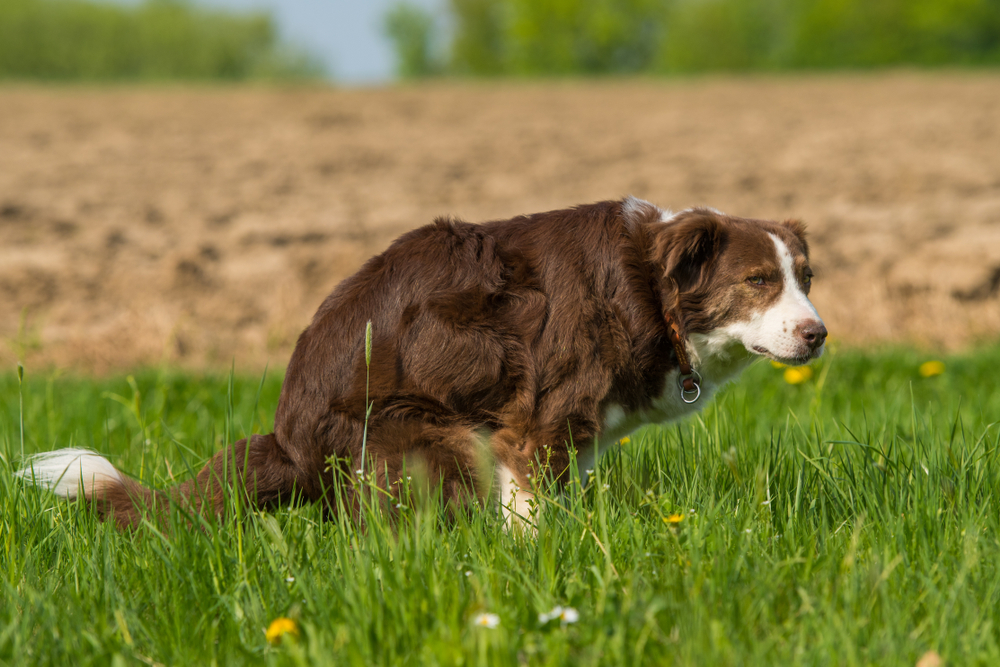

What if I were to ask you the following question: What did you have for dinner last Tuesday?
If you’re like most people, you’d have a hard time remembering. And that’s no surprise, because most people vary their diet significantly from day to day.
However, what if I asked you this question: What did your dog have for dinner last Tuesday?
According to our research, most dog owners would easily know this because their dogs eat the same diet every day.
According to a new poll conducted on the iHeartDogs Facebook page and taken by 3,900 readers, 72% of dog owners feed their dog the same food each and every day:


The Case Against Feeding Your Dog The Same Food Every Day
In this article, I’d like to make the case to you that rotating your dog’s food could be very beneficial to their health, both long term and short term. Here are 5 reasons to consider rotation feeding:
1. Recalls Pose More of a Threat When A Dog Eats the Same Food Daily


In January of 2019, and again in March of 2019, both pet parents and veterinarians alike we’re rocked by the Vitamin D related recalls of Hill’s Pet Food. Both lawsuits and allegations on social media claim that potentially thousands of pets have become ill or died from Vitamin D toxicity.
While no pet food company is immune to recalls, this particular recall is particularly disturbing because Hill’s is so well regarded by the veterinarian community and sold directly by many vet offices.
The reality is that no commercial pet food is without risk of recall. However, by rotating the commercial food you feed your dog, you reduce the likelihood that they will be impacted by a toxic ingredient. This is especially important because often recalls are only announced after there has existed a problem with the food for many months!
2. Nutritional Imbalances Are More Likely When a Dog Always Eats the Same Food
While most dog foods are formulated to be “completed & balanced”, the reality is that no processed commercial food can provide for all of life’s dietary needs from puppyhood to the senior years.
Just like you and I crave different foods at different seasons in our life, a dog’s body will require different nutrients at different times.
By rotating ingredients, you’ll expose your dog to a wide variety of nutrients. Just like the ancestors of modern dogs would rotate the foods they ate in the wild, rotating your dog’s diet provides similar benefits.
In the last 6 months, the FDA has discussed the possibility that popular grain free diets may even be contributing to dilated cardiomyopathy (DCM) in dogs. While we don’t yet have all the facts, the issue does seem to relate to a lack of taurine found in legume or potato based foods. Yet another reason to rotate.
3. Allergies & Food Intolerances Are More Likely to Develop When Dogs Only Eat One Food


Many pet parents are surprised to learn that its actually consistency, not variety, that induces allergic responses to food. Feeding your dog the same exact formula for years actually sensitizes them to the ingredients, and their body can develop a strong reaction towards them. This is why so many pet parents observe their dogs developing allergies in their later years, despite the fact that the diet or environment has not changed.
In this short 5 minute video, veterinarian Dr. Karen Becker makes a powerful case for why rotating protein sources can prevent your dog from developing allergies during life.
4. Dogs Are Likely To Become Bored When They Only Eat One Food
Can you imagine feeding yourself or your child only one food for their entire life? Dogs, like people, are sensory beings. They enjoy variety just as much as we do!
There’s something pretty satisfying about giving your dog a diet that consistently surprises and delights their palate. They will thank you for it in more ways than one!
5. All Commercial Foods Are Deficient in Certain Nutrients
Kibble and canned foods can be very convenient. But just like you’d never feed your child a 100% processed food diet, consider the potential downfalls of feeding only commercial food.
Heat and processing destroys much of the value of the nutrients in store bought foods. In particular, essential fatty acids are very lacking. Even if your dog food claims to contain Omega-3 fatty acids, those healthy fats likely do not survive processing, and are present in extremely low amounts. This is why fish oil or krill oil is one of the most popular supplements given by dog owners.
How to Start Rotational Feeding & Minimize Digestive Upset


Many dog owners are concerned about changing their dog’s diet because it could lead to digestive upset.
If your dog’s stomach is easily upset, their gut micro-biome may not be in very good shape. Imagine if you ate the same food every day for years, and then all of a sudden changed something. A non-varying diet, while giving your dog consistent bowel movements, may have conditioned your dog’s digestive system to only accept one kind of food.
Adding in probiotics to your dog’s existing diet before you make a change can be very beneficial. In addition, always start with a small amount of any new food, adding it into the existing food. Never change their diet all at once.
For many dog owners, keeping the same commercial food but rotating in fresh ingredients is a better option for rounding out your dog’s diet. Some of my favorite food add ins are raw or cooked eggs, carrots, green bean, and blue berries. The more color the better!
RELATED: 10 Surprising Myths About Dry Dog Food
Is Rotational Feeding Right for EVERY Dog?
I firmly believe that rotational feeding makes sense for most healthy dogs. However, dogs with serious diseases or allergies may require very strict diets, and therefore rotational feeding may not make sense.
Ultimately, the decision about whether or not you rotate your dog’s food is between you and your veterinarian. Do your homework, talk to your vet, and learn from what your dog’s body is telling you. Let’s give our dogs the best – they deserve it!
About The Author: Justin Palmer is the co-founder of iHeartDogs.com, a DNM certified pet food nutrition expert, and dog dad to Splash, a 13 year old rescued Siberian Husky. You can reach him at justin[at]iheartdogs.com.
Do you want a healthier & happier dog? Join our email list & we’ll donate 1 meal to a shelter dog in need!
Be the first to comment